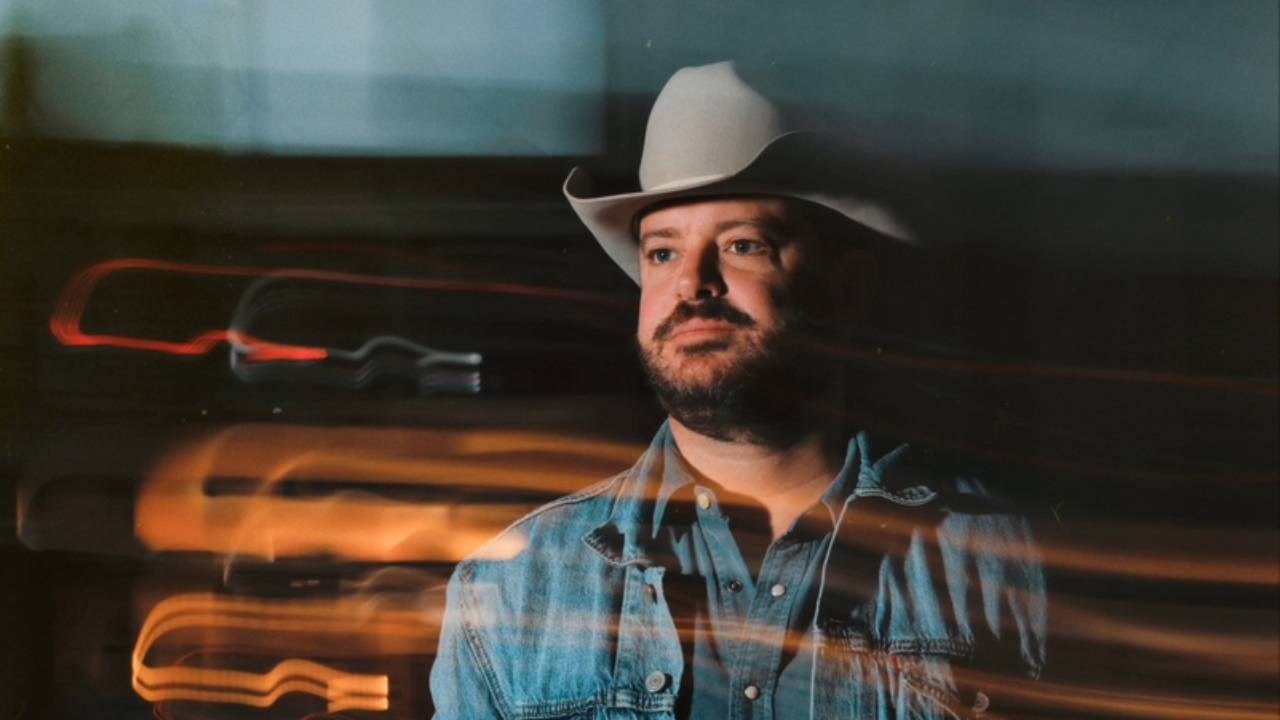Career Detours Lead Keith Urban to 'Golden Road'
Up in the California hills above Malibu, on a breathtaking property owned by architect Frank Lloyd Wright’s son, an unexpected golden-haired visitor caught Keith Urban off-guard during the video shoot for “Somebody Like You.”
That would be the anxious dog that suddenly races through a scene in the middle of the clip.
“He belonged to somebody in the crew I guess,” Urban tells CMT.com. “He had been out of the shot all day and just took off.”
And, oh yeah, supermodel Niki Taylor -- who now lives in the Nashville area -- also stars in the video.
“She belonged to the crew, too,” Urban jokes. “She just took off running.”
Actually, a mutual friend arranged the collaboration between the beautiful people. Keith, who turns 35 on Oct. 26, says they remain good friends.
“She’d never done a video before, which I thought was amazing,” Urban says. “And she loves country. Who knew?”
Add that coup to the list of Urban’s pioneering. “Somebody Like You” sits at No. 2 on CMT’s Top Twenty Countdown, and the single has spent two weeks at No. 1 on Billboard’s country singles chart. The new album, Golden Road, debuted at No. 3 on the Billboard country albums chart.
It has been 10 years since Urban, who was born and raised in Australia, moved to Nashville in pursuit of a country music career. Because of his fast fingers on electric guitar, his budding skill as a songwriter and a youthful, sexy look, the music business did notice his star potential. Still, for many years, the big break eluded him.
“Unfortunately, it was always like, ‘That’s great, but what do we do with him?’ I don’t know how to take that. I’m flattered and frustrated all at once,” Urban remembers. “But this guy, Cliff Audretch [an executive at Sony Music], gave me the best advice I ever got. He came to see us one time in Nashville years and years ago. He came to me afterwards and said, ‘You’re really unique. It’s going to be your biggest curse until it becomes your greatest blessing.’ That was exactly it.”
Urban signed a development deal with Warner Bros. in 1995, but it stalled. The Ranch, a band he formed with Jerry Flowers and Peter Clarke, issued a self-titled album in 1997 on Capitol Records. Despite strong material, country radio ignored its two singles and the Ranch soon called it quits. Urban shakily faced the future with two major-label false starts in a business that rarely allows even one.
“I went for six months without playing live, and that was the longest I had ever gone without performing,” Urban remembers. “It dawned on me that as a performing musician, you get applause for what you do. And I’ve been performing since I was 7, so a huge part of my self-esteem -- for better or worse -- is based on this audience adulation. If you take that away from me for six months, ooh, there’s a major imbalance that put me off course.”
In the late ‘90s, Capitol Records hired a new label chief, Pat Quigley. Before long, the label endured a mass exodus of its established stars (such as John Berry, Suzy Bogguss, Deana Carter and Billy Dean) as well as many new artists. Surprisingly, the label kept Urban. His 1999 self-titled debut won points for sincerity but lacked the hot guitar work of The Ranch.
“I just wasn’t in a bold frame of mind,” Urban says, about making his first solo record. “I was just really glad to be alive, and to be here still, and to have kept my record deal. It was a very humble record, a lot of humility on that record, because that’s where I was at.”
The first single, “It’s a Love Thing,” crawled to No. 18, but the second single, “Your Everything,” reached No. 4. Finally, “But for the Grace of God,” a modest ballad about striving for personal peace, rose to No. 1 in early 2001. He snagged the CMA Horizon award that same year.
“All I wanted to do was get accepted in Nashville because you get a lot of buzz about you, but that doesn’t mean you’ve got support or the acceptance of the town. When they visibly show that they’re behind you, that’s a big deal,” he says about his victory. “That meant a lot to me.”
Rather than jump into a new studio album, Urban laid down 10 tracks in December 2001 with only a bass player and a drummer to decide if a new batch of songs met his standards. In addition, Urban’s break-up with his fiancée kept Golden Road under construction longer than anticipated.
“It was very, very difficult,” Urban admits. “I found some solace in my work but also found days when I couldn’t do it. I had to reschedule stuff. That had a lot to do with the record taking a long time. It’s an awkward place to be, singing all those joyous love songs.”
All the same, Golden Road succeeds in blending the intensity of his live show with his knack for writing mainstream country love songs.
“There are a lot of ways to achieve your objectives, and what I needed to do was ease myself in. That last record did that. It’s a much more polite record,” he says. “You don’t scratch your privates on the first date, you know? I mean, that’s you and who you are, but you just don’t it.”
So, speaking of being polite, when do you scratch yourself?
“When your career’s over!” he answers with a chuckle. “At least you had a career!”





